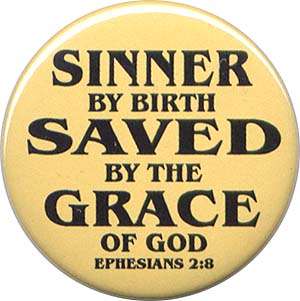"Resurrection from the dead promises that we shall be made anew out of the nothingness of relationlessness, remade ex nihilo, if through faith in the creative Word of God we allow ourselves to participate in the love of God which occurs as the death of Jesus Christ. In this sense, Christian existence is existence out of nothingness, because it is all along the line existence out of the creative power of God who justifies". Eberhard Jüngel
It's pretty bleak stuff.
Genesis tells us that our world and the universe itself began "without form and void" (Genesis 1:2) - something which modern cosmology pretty well affirms in its own particular way, but that really wasn't, as we can see, the end of the story. The question is, why did it begin that way, and why did anything else then happen?
There is, of course, heaps of maths and theorem about order and process, but it all proceeds from the notion that development was, in effect, the reasonable outcome (because that's what we have), but theology gives us a very different and striking insight into what's going on. It tells us that this life is currently devoid of what really matters, and the reason for that is because the very fabric and fiber of what's going on has been tainted by a cosmic tragedy, (Romans 5:12) so here's why, I suspect, we have Genesis stating that things have been brought about in a particular way.
The first image of creation scripture provides is one of darkness, emptiness and void. It's not that there's nothing there, it's just that until it is acted upon by one outside of it, it's not going anywhere - stasis as a barren realm is the status quo.
So much for the 'natural' state of affairs.
Then we have the miracle.
As in the moment when a seed dies to produce something more glorious, God takes the crude mass of the heavens and earth and breaks upon them with His living word, and light explodes to furnish the darkness. What could never be 'naturally' is made to be so by the very nature of one who can take what is empty and fill it with a significance it could never of itself have known.
The world today tells us why it was done this way.
In spite of all the frenetic pace of our scurrying race, we in truth are as lifeless as the primal mass that of itself could produce nothing. We babble loudly in our to-ing and fro-ing, but we're entirely overshadowed in our brief moment here by the void of death, and nothing we can say or do can break the hold of what is deemed 'natural' upon us. We are a thing aching for the radiance that flickers in starlight and the astonishing grandeur occasionally encountered in our soul or art, but we are imprisoned by the poverty of our beguiled exile.
This reality impinges on our every moment, no matter how much fury we employ to negate its hold, so everything in itself can only return to ash and dust. That is the awful truth.
And yet, our dreams and loves say we should be more than this.
And Genesis itself does not leave us in such captivity.
As the Father brings form and life to His first work through Word and Spirit, He weaves seasonal renewal within the pattern of creation that speaks continually of the promise that will come through our age of exile to restore, amidst death, the return to life where death is ended (Genesis 1:11-13). So it was that the one Born not of the will of men came, grew and was executed that our incarceration should cease. "Born", He was, "to raise the sons of earth". Died, on a Cross, that from His death and rising would come a second birth (1 Corinthians 15:35-49).
Without The Godhead, there is certainly only darkness and void, and death - both mortal and eternal - which ends us all. With that life which conquers all, all things, even physical death itself, becomes but a prelude to the moment when the great light of the eternal day erupts upon us.
The winter speaks to us - to our frailty and mortality - confirming that all things end, but it was amidst this very darkness that Christ came. The light, notes John, has shone into this darkness (John 1: 5), and just as that first word in creation brought such light, so now the word brings life that overcomes our being shackled only to death (John 1: 14, 10).
Something to ponder on the nights of the season, as we consider that first advent.
Season Greetings!
Subscribe to:
Post Comments (Atom)





No comments:
Post a Comment